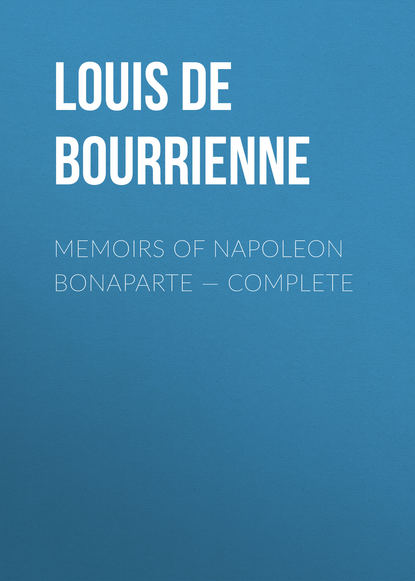 Полная версия
Полная версияMemoirs of Napoleon Bonaparte — Complete
Having arrived within a hundred paces of the place where his troops were assembled he found the generals who were under his orders advancing to meet him. They urged him not to go farther, as the men were in open insurrection. "I will go into the midst of them," said Marmont. "In a moment they shall either kill me or acknowledge me as their chief:" He sent off another aide de camp to range the troops in the order of battle. Then, alighting from the carriage and mounting a horse, he advanced alone, and thus harangued his troops: "How! Is there treason here? Is it possible that you disown me? Am I not your comrade? Have I not been wounded twenty times among you? . . . Have I not shared your fatigues and privations? And am I not ready to do so again?" Here Marmont was interrupted by a general shout of "Vive le Marechal! Vive le Marechal!"
The alarm caused among the members of the Provisional Government by the mission of the Marshals was increased by the news of the mutiny of Marmont's troops. During the whole of the day we were in a state of tormenting anxiety. It was feared that the insurrectionary spirit might spread among other corps of the army, and the cause of France again be endangered. But the courage of Marmont saved everything: It would be impossible to convey any idea of the manner in which he was received by us at Talleyrand's when he related the particulars of what had occurred at Versailles.
On the evening of the day on which Marmont had acted so nobly it was proposed that the army should adopt the white cockade. In reply to this proposition the Marshal said, "Gentlemen, I have made my troops understand the necessity of serving France before all things. They have, consequently, returned to order, and I can now answer for them. But what I cannot answer for is to induce them to abandon the colours which have led them to victory for the last twenty years. Therefore do not count upon me for a thing which I consider to be totally hostile to the interests of France. I will speak to the Emperor Alexander on the subject." Such were Marmont's words. Every one appeared to concur in his opinion, and the discussion terminated. For my own part, I find by my notes that I declared myself strongly in favour of Marmont's proposition.
The Marshal's opinion having been adopted, at least provisionally, an article was prepared for the Moniteur in nearly the following terms:
The white cockade has been, during the last four days, a badge for the manifestation of public opinion in favour of the overthrow of an oppressive Government: it has been the only means of distinguishing the partisans of the restoration of the old dynasty, to which at length we are to be indebted for repose. But as the late Government is at an end, all colours differing from our national colours are useless: let us, therefore, resume those which have so often led us to victory.
Such was the spirit of the article, though possibly the above copy may differ in a few words. It met with the unqualified approbation of every one present. I was therefore extremely surprised, on looking at the 'Moniteur' next day, to find that the article was not inserted. I knew not what courtly interference prevented the appearance of the article, but I remember that Marmont was very ill pleased at its omission. He complained on the subject to the Emperor Alexander, who promised to write, and in fact did write, to the Provisional Government to get the article inserted. However, it did not appear, and in a few days we obtained a solution of the enigma, as we might perhaps have done before if we had tried. The Emperor Alexander also promised to write to the Comte d'Artois, and to inform him that the opinion of France was in favour of the preservation of the three colours, but I do not know whether the letter was written, or, if it was, what answer it received.
Marshal Jourdan, who was then at Rouen, received a letter, written without the knowledge of Marmont, informing him that the latter had mounted the white cockade in his corps. Jourdan thought he could not do otherwise than follow Marmont's example, and he announced to the Provisional Government that in consequence of the resolution of the Duke of Ragusa he had just ordered his corps to wear the white cockade. Marmont could now be boldly faced, and when he complained to the Provisional Government of the non-insertion of the article in the Moniteur the reply was, "It cannot now appear. You see Marshal Jourdan has mounted the white cockade: you would not give the army two sets of colours!"
Marmont could make no answer to so positive a fact. It was not till some time after that I learned Jourdan had determined to unfurl the white flag only on the positive assurance that Marmont had already done so. Thus we lost the colours which had been worn by Louis XVI., which Louis XVIII., when a Prince, had adopted, and in which the Comte d'Artois showed himself on his return to the Parisians, for he entered the capital in the uniform of the National Guard. The fraud played off by some members of the Provisional Government was attended by fatal consequences; many evils might have been spared to France had Marmont's advice been adopted.
At the period of the dissolution of the Empire there might be said to be three Governments in France, viz. the Provisional Government in Paris, Napoleon's at Fontainebleau, and the doubtful and ambulatory Regency of "Maria Louisa." Doubtful and ambulatory the Regency might well be called, for there was so little decision as to the course to be adopted by the Empress that it was at first proposed to conduct her to Orleans, then to Tours, and she went finally to Blois. The uncertainty which prevailed respecting the destiny of Maria Louisa is proved by a document which I have in my possession, and of which there cannot be many copies in existence. It is a circular addressed to the prefects by M. de Montalivet, the Minister of the Interior, who accompanied the Empress. In it a blank is left for the seat of the Government, to which the prefects are desired to send their communications. In the copy I possess the blank is filled up with the word "Blois" in manuscript.
As soon as Maria Louisa was made acquainted with the events that had taken place around Paris she sent for the Duc de Cadore, and gave him a letter addressed to the Emperor of Austria, saying, "Take this to my father, who must be at Dijon. I rely on you for defending the interests of France, those of the Emperor, and above all those of my son." Certainly Maria Louisa's confidence could not be better placed, and those great interests would have been defended by the Duc de Cadore 'si defendi possent.'
After the departure of the Duc de Cadore Maria Louisa published the following proclamation, addressed to the French people:
BY THE EMPRESS REGENT A ProclamationThe events of the war have placed the capital in the power of foreigners. The Emperor has marched to defend it at the head of his armies, so often victorious. They are face to face with the enemy before the walls of Paris. From the residence which I have chosen, and from the Ministers of the Emperor, will emanate the only orders which you can acknowledge. Every town in the power of foreigners ceases to be free, and every order which may proceed from them is the language of the enemy, or that which it suits his hostile views to propagate. You will be faithful to your oaths. You will listen to the voice of a Princess who was consigned to your good faith, and whose highest pride consists in being a Frenchwoman, and in being united to the destiny of the sovereign whom you have freely chosen. My son was less sure of your affections in the time of our prosperity; his rights and his person are under your safeguard.
(By order) MONTALIVET. (Signed) MARIA LOUISABLOIS, 3d April 1814.
It is to be inferred that the Regency had within three days adopted the resolution of not quitting Blois, for the above document presents no blanks, nor words filled up in writing. The Empress' proclamation, though a powerful appeal to the feelings of the French people, produced no effect. Maria Louisa's proclamation was dated the 4th of April, on the evening of which day Napoleon signed the conditional abdication, with the fate of which the reader has already been made acquainted. M. de Montalivet transmitted the Empress' proclamation, accompanied by another circular, to the prefects, of whom very few received it.
M. de Champagny, having left Blois with the letter he had received from the Empress, proceeded to the headquarters of the Emperor of Austria, carefully avoiding those roads which were occupied by Cossack troops. He arrived, not without considerable difficulty, at Chanseaux, where Frances II. was expected. When the Emperor arrived the Duc de Cadore was announced, and immediately introduced to his Majesty. The Duke remained some hours with Francis II., without being able to obtain from him anything but fair protestations. The Emperor always took refuge behind the promise he had given to his Allies to approve whatever measures they might adopt. The Duke was not to leave the Emperor's headquarters that evening, and, in the hope that his Majesty might yet reflect on the critical situation of his daughter, he asked permission to take leave next morning. He accordingly presented himself to the Emperor's levee, when he renewed his efforts in support of the claims of Maria Louisa. "I have a great affection for my daughter, and also for my son-in law," said the Emperor. "I bear them both in my heart, and would shed my blood for them"—"Ah, Sire!" exclaimed M. de Champagny, "such a sacrifice is not necessary."—"Yes, Duke, I say again I would shed my blood, I would resign my life for them, but I have given my Allies a promise not to treat without them, and to approve all that they may do. Besides," added the Emperor, "my Minister, M. de Metternich, has gone to their headquarters, and I will ratify whatever he may sign."
When the Duc de Cadore related to me the particulars of his mission, in which zeal could not work an impossibility, I remarked that he regarded as a circumstance fatal to Napoleon the absence of M. de Metternich and the presence of M. Stadion at the headquarters of the Emperor of Austria. Though in all probability nothing could have arrested the course of events, yet it is certain that the personal sentiments of the two Austrian Ministers towards Napoleon were widely different. I am not going too far when I affirm that, policy apart, M. de Metternich was much attached to Napoleon. In support of this assertion I may quote a fact of which I can guarantee the authenticity:
When M. de Metternich was complimented on the occasion of Maria Louisa's marriage he replied, "To have contributed to a measure which has received the approbation of 80,000,000 men is indeed a just subject of congratulation." Such a remark openly made by the intelligent Minister of the Cabinet of Vienna was well calculated to gratify the ears of Napoleon, from whom, however, M. de Metternich in his personal relations did not conceal the truth. I recollect a reply which was made by M. de Metternich at Dresden after a little hesitation. "As to you," said the Emperor, "you will not go to war with me. It is impossible that you can declare yourself against me. That can never be."—"Sire, we are not now quite allies, and some time hence we may become enemies." This hint was the last which Napoleon received from Metternich, and Napoleon must have been blind indeed not to have profited by it. As to M. Stadion, he entertained a profound dislike of the Emperor. That Minister knew and could not forget that his preceding exclusion from the Cabinet of Vienna had been due to the all-powerful influence of Napoleon.
Whether or not the absence of Metternich influenced the resolution of Francis II., it is certain that that monarch yielded nothing to the urgent solicitations of a Minister who conscientiously fulfilled the delicate mission consigned to him. M. de Champagny rejoined the Empress at Orleans, whither she had repaired on leaving Blois. He found Maria Louisa almost deserted, all the Grand Dignitaries of the Empire having successively returned to Paris after sending in their submissions to the Provisional Government.
I had scarcely entered upon the exercise of my functions as Postmaster-General when, on the morning of the 2d of April, I was surprised to see a Prussian general officer enter my cabinet. I immediately recognised him as General Blücher. He had commanded the Prussian army in the battle which took place at the gates of Paris. "Sir," said he, "I consider it one of my first duties on entering Paris to thank you for the attention I received from you in Hamburg. I am sorry that I was not sooner aware of your being in Paris. I assure you that had I been sooner informed of this circumstance the capitulation should have been made without a blow being struck. How much blood might then have been spared!"—"General," said I, "on what do you ground this assurance?"—"If I had known that you were in Paris I would have given you a letter to the King of Prussia. That monarch, who knows the resources and intentions of the Allies, would, I am sure, have authorised you to decide a suspension of arms before the neighbourhood of Paris became the theatre of the war."—"But," resumed I, "in spite of the good intentions of the Allies, it would have been very difficult to prevent resistance. French pride, irritated as it was by reverses, would have opposed insurmountable obstacles to such a measure."—"But, good heavens! you would have seen that resistance could be of no avail against such immense masses."—"You are right, General; but French honour would have been defended to the last."—"I am fully aware of that; but surely you have earned glory enough!"—"Yet our French susceptibility would have made us look upon that glory as tarnished if Paris had been occupied without defence ... But under present circumstances I am well pleased that you were satisfied with my conduct in Hamburg, for it induces me to hope that you will observe the same moderation in Paris that I exercised there. The days are past when it could be said, Woe to the conquered."—"You are right; yet," added he, smiling, "you know we are called the northern barbarians."—"Then, General," returned I, "you have a fair opportunity of showing that that designation is a libel."
Some days after Blücher's visit I had the honour of being admitted to a private audience of the King of Prussia. Clarke and Berthier were also received in this audience, which took place at the hotel of Prince Eugène, where the King of Prussia resided in Paris. We waited for some minutes in the salon, and when Frederick William entered from his cabinet I remarked on his countenance an air of embarrassment and austerity which convinced me that he had been studying his part, as great personages are in the habit of doing on similar occasions. The King on entering the salon first noticed Berthier, whom he addressed with much kindness, bestowing praises on the French troops, and complimenting the Marshal on his conduct during the war in Germany. Berthier returned thanks for these well-merited praises, for though he was not remarkable for strength of understanding or energy of mind, yet he was not a bad man, and I have known many proofs of his good conduct in conquered countries.
After saluting Berthier the King of Prussia turned towards Clarke, and his countenance immediately assumed an expression of dissatisfaction. He had evidently not forgotten Clarke's conduct in Berlin. He reminded him that he had rendered the Continental system more odious than it was in itself, and that he had shown no moderation in the execution of his orders. "In short," said his Majesty, "if I have any advice to give you, it is that you never again return to Prussia." The King pronounced these words in so loud and decided a tone that Clarke was perfectly confounded. He uttered some unintelligible observations, which, however, Frederick William did not notice, for suddenly turning towards me he said, with an air of affability, "Ah! M. de Bourrienne, I am glad to see you, and I take this opportunity of repeating what I wrote to you from Gonigsberg. You always extended protection to the Germans, and did all you could to alleviate their condition. I learned with great satisfaction what you did for the Prussians whom the fate of war drove into Hamburg; and I feel pleasure in telling you, in the presence of these two gentlemen, that if all the French agents had acted as you did we should not, probably, be here." I expressed, by a profound bow, how much I was gratified by this complimentary address, and the king, after saluting us, retired.
About the middle of April Bernadotte arrived in Paris. His situation had become equivocal, since circumstances had banished the hopes he might have conceived in his interview with the Emperor Alexander at Åbo. Besides, he had been represented in some official pamphlets as a traitor to France, and among certain worshippers of our injured glory there prevailed a feeling of irritation, and which was unjustly directed towards Bernadotte.
I even remember that Napoleon, before he had fallen from his power, had a sort of national protest made by the police against the Prince Royal of Sweden. This Prince had reserved an hotel in the Rue d'Anjou, and the words, "Down with the traitor! down with the perjurer," were shouted there; but this had no result, as it was only considered an outrage caused by a spirit of petty vengeance.
While Bernadotte was in Paris I saw him every day. He but faintly disguised from me the hope he had entertained of ruling France; and in the numerous conversations to which our respective occupations led I ascertained, though Bernadotte did not formally tell me so, that he once had strong expectations of succeeding Napoleon.
Pressed at last into his final intrenchments he broke through all reserve and confirmed all I knew of the interview of Åbo.
I asked Bernadotte what he thought of the projects which were attributed to Moreau; whether it was true that he had in him a competitor, and whether Moreau had aspired to the dangerous honour of governing France: "Those reports," replied the Prince Royal of Sweden, "are devoid of foundation: at least I can assure you that in the conversations I have had with the Emperor Alexander, that sovereign never said anything which could warrant such a supposition. I know that the Emperor of Russia wished to avail himself of the military talents of Moreau in the great struggle that had commenced, and to enable the exiled general to return to his country, in the hope that, should the war prove fortunate, he would enjoy the honours and privileges due to his past services."
Bernadotte expressed to me astonishment at the recall of the Bourbons, and assured me that he had not expected the French people would so readily have consented to the Restoration. I confess I was surprised that Bernadotte, with the intelligence I knew him to possess, should imagine that the will of subjects has any influence in changes of government!
During his stay in Paris Bernadotte evinced for me the same sentiments of friendship which he had shown me at Hamburg. One day I received from him a letter, dated Paris, with which he transmitted to me one of the crosses of the Polar Star, which the King of Sweden had left at his disposal. Bernadotte was not very well satisfied with his residence in Paris, in spite of the friendship which the Emperor Alexander constantly manifested towards him. After a few days he set out for Sweden, having first taken leave of the Comte d'Artois. I did not see him after his farewell visit to the Count, so that I know not what was the nature of the conversation which passed between the two Princes.
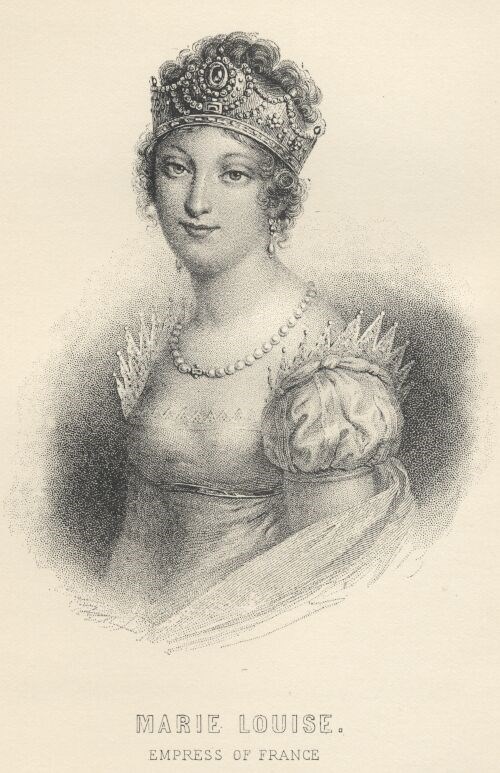
VOLUME IV. — 1814-1821
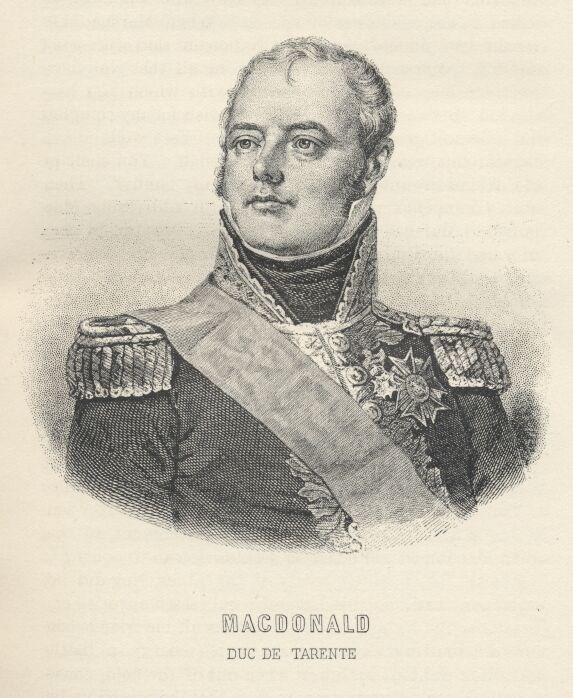
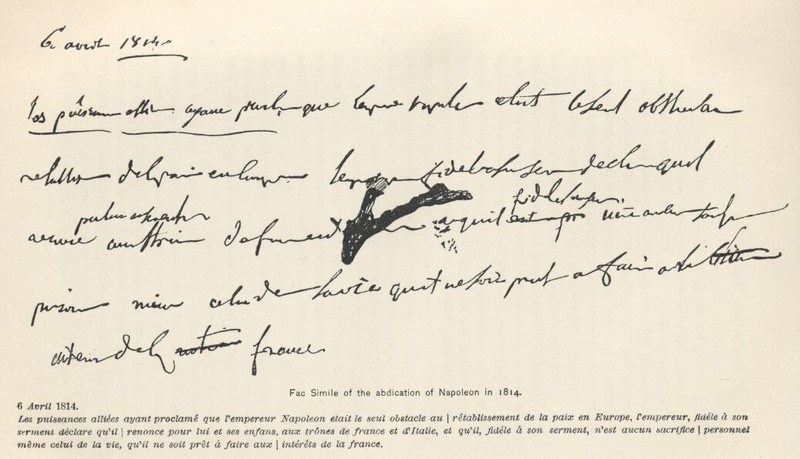
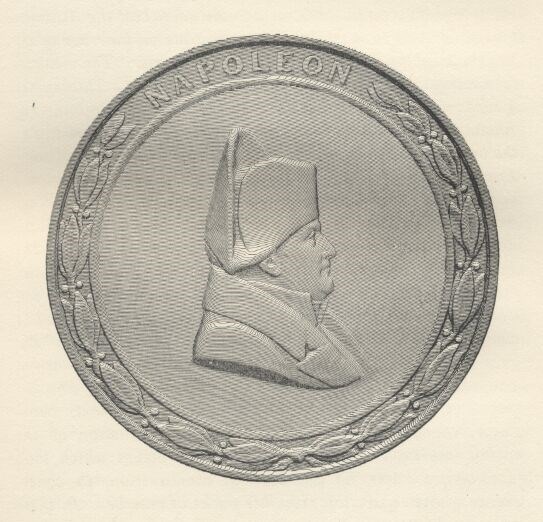
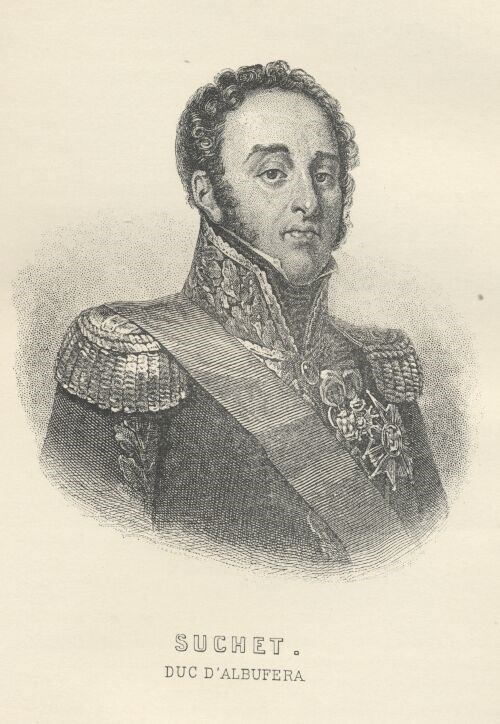
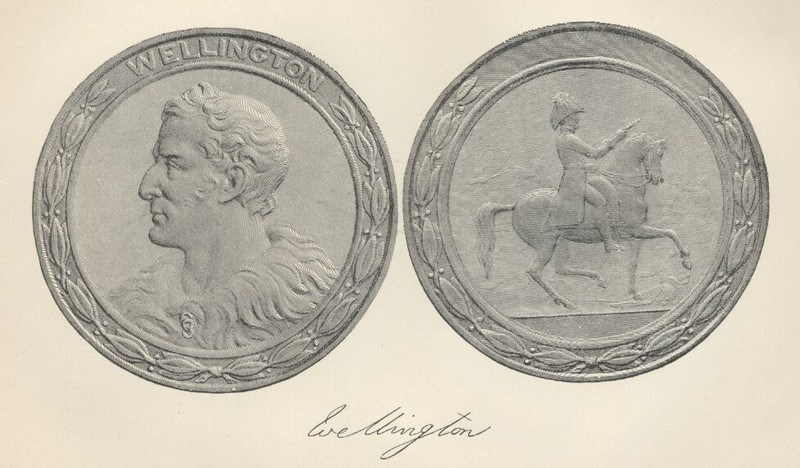
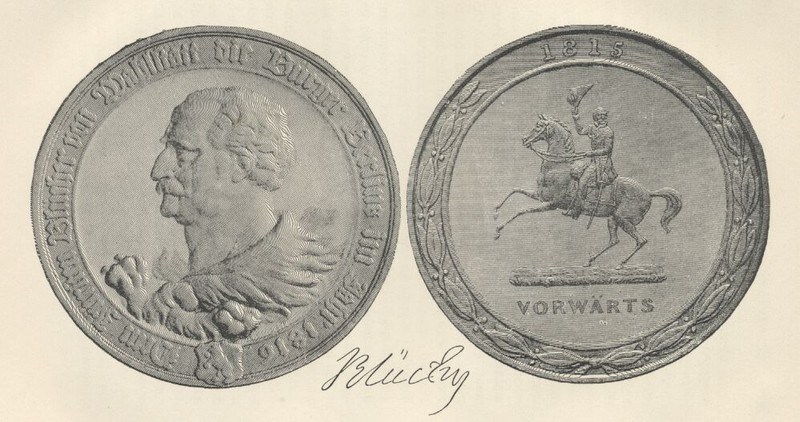
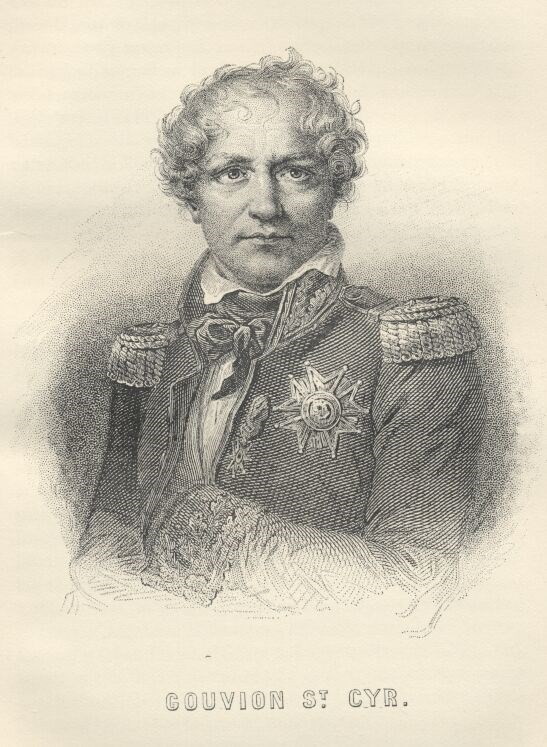
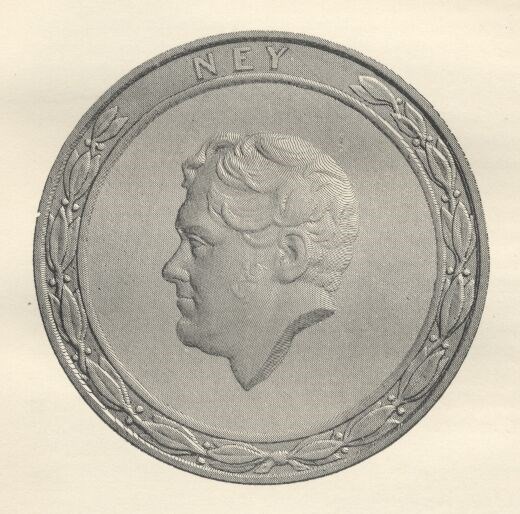
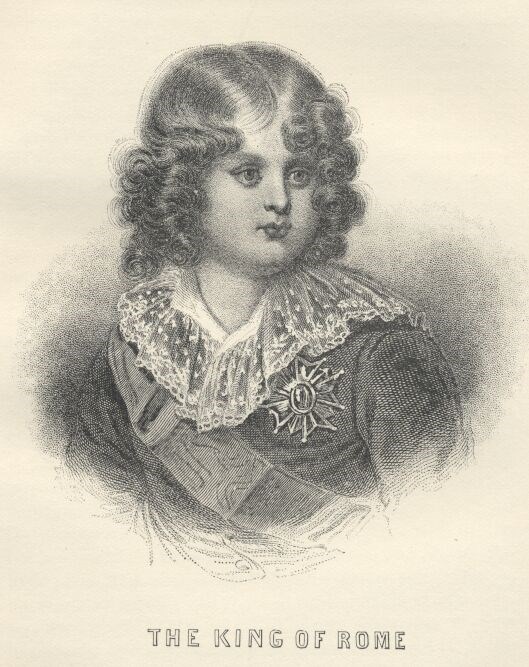
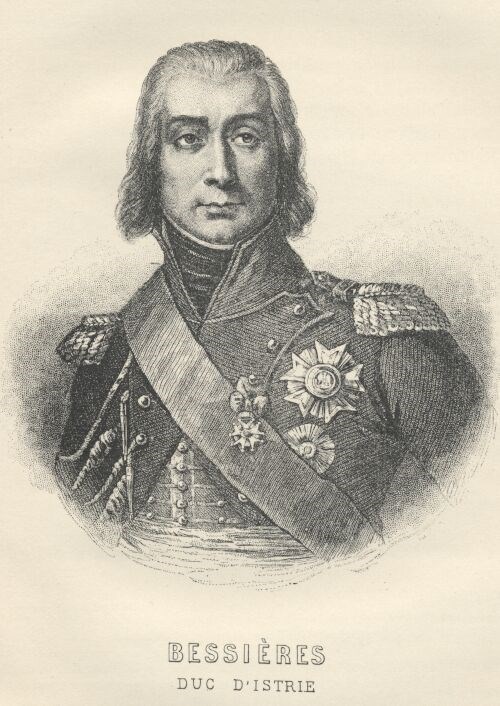
CHAPTER I
1814.
Unalterable determination of the Allies with respect to Napoleon— Fontainebleau included in the limits to be occupied by the Allies— Alexander's departure from Paris—Napoleon informed of the necessity of his unconditional abdication—Macdonald and Ney again sent to Paris—Alleged attempt of Napoleon to poison himself—Farewell interview between Macdonald and Napoleon—The sabre of Murad Bey— Signature of the act of unconditional abdication—Tranquillity of Paris during the change of Government—Ukase of the Emperor of Russia relative to the Post-office—Religious ceremony on the Place Louis XV.—Arrival of the Comte d'Artois—His entrance into Paris— Arrival of the Emperor of Austria—Singular assemblage of sovereigns in France—Visit of the Emperor of Austria to Maria Louisa—Her interview with the Emperor Alexander—Her departure for Vienna.
When Marmont left Paris on the receipt of the intelligence from Essonne, Marshals Macdonald and Ney and the Duke of Vicenza waited upon the Emperor Alexander to learn his resolution before he could have been informed of the movement of Marmont's troops. I myself went during the morning to the hotel of M. de Talleyrand, and it was there I learnt how what we had hoped for had become fact: the matter was completely decided. The Emperor Alexander had walked out at six in the morning to the residence of the King of Prussia in the Rue de Bourbon. The two sovereigns afterwards proceeded together to M. de Talleyrand's, where they were when Napoleon's Commissioners arrived. The Commissioners being introduced to the two sovereigns, the Emperor Alexander, in answer to their proposition, replied that the Regency was impossible, as submissions to the Provisional Government were pouring in from all parts, and that if the army had formed contrary wishes those should have been sooner made known. "Sire," observed Macdonald, "that—was—impossible, as none of the Marshals were in Paris, and besides, who could foresee the turn which affairs have taken? Could we imagine that an unfounded alarm would have removed from Essonne the corps of the Duke of Ragusa, who has this moment left us to bring his troops back to order?" These words produced no change in the determination of the sovereigns, who would hear of nothing but the unconditional abdication of Napoleon. Before the Marshals took leave of the Emperor Alexander they solicited an armistice of forty-eight hours, which time they said was indispensable to negotiate the act of abdication with Napoleon. This request was granted without hesitation, and the Emperor Alexander, showing Macdonald a map of the environs of Paris, courteously presented him with a pencil, saying, "Here, Marshal, mark yourself the limits to be observed by the two armies."—"No, Sire," replied Macdonald, "we are the conquered party, and it is for you to mark the line of demarcation." Alexander determined that the right bank of the Seine should be occupied by the Allied troops, and the left bank by the French; but it was observed that this arrangement would be attended with inconvenience, as it would cut Paris in two, and it was agreed that the line should turn Paris. I have been informed that on a map sent to the Austrian staff to acquaint Prince Schwartzenberg with the limits definitively agreed on, Fontainebleau, the Emperor's headquarters, was by some artful means included within the line. The Austrians acted so implicitly on this direction that Marshal Macdonald was obliged to complain on the subject to Alexander, who removed all obstacles.



